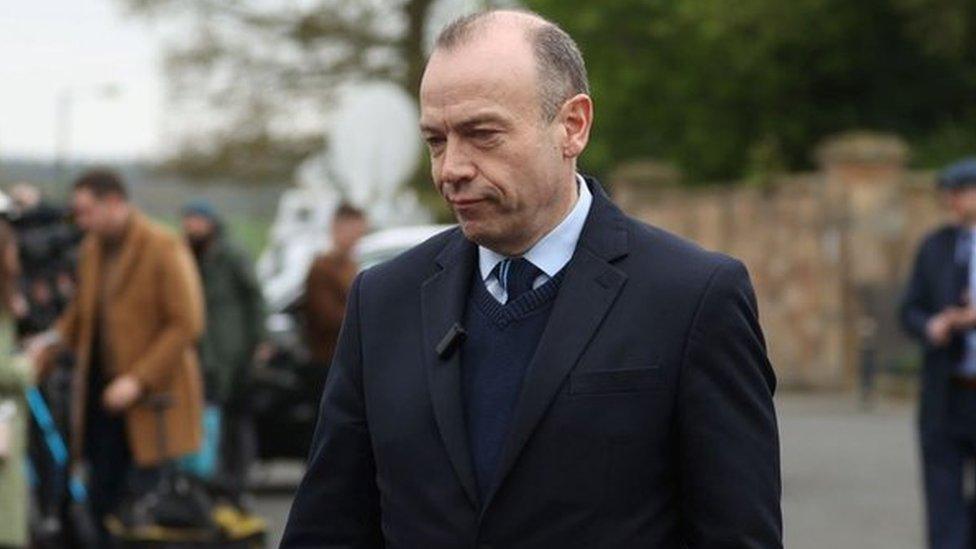Money raising plans are attempt to pressure DUP, Sinn Féin says
- Published
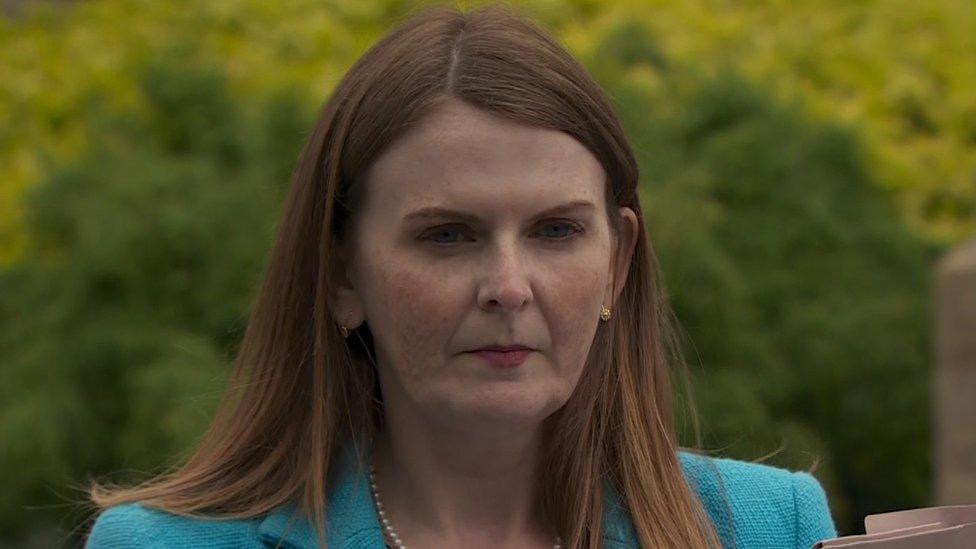
Sinn Féin's Caoimhe Archibald spoke after meeting head of Northern Ireland's civil service Jayne Brady
Sinn Féin has accused the government of using money raising proposals to apply pressure on the Democratic Unionist Party (DUP) to return to power-sharing.
It comes after proposals drawn up by civil servants to raise more public revenue were given to parties.
On Wednesday, more than 40 potential measures to deal with the ongoing financial crisis were published.
They included parents potentially having to pay more for school dinners and home-to-school transport.
DUP leader Sir Jeffrey Donaldson said the revenue raising plans put added financial burdens on families.
Northern Ireland Secretary Chris Heaton-Harris asked officials to draw up the measures in June, but it would be up to a future executive to implement any of them.
There is currently no executive at Stormont after the DUP withdrew in February 2022 in protest against post-Brexit arrangements for Northern Ireland.
'Sustainable trajectory'
Following Thursday's meetings, Mr Heaton-Harris said Northern Ireland's finances were "not on a sustainable trajectory".
"For NI to balance the books and have a prosperous future that requires fiscal responsibility with public spending," he continued.
"The UK Government has given £7bn in additional funding to NI since 2014 on top of the Barnett-based block grant and we stand ready to continue supporting a restored executive.
"That's why we are looking at improvements to NI's finances, including revenue raising measures."
The secretary of state had previously denied the move is an attempt to ramp up pressure to restore power-sharing.
After meeting the head of the Northern Ireland Civil Service on Thursday, Caoimhe Archibald of Sinn Féin said the plans would harm people.
"These are measures that are punitive and would punish the public more and there's obviously an ideological agenda there," she said.
"It's very clear it's being done in an attempt to put pressure on the DUP, but what it's actually doing is putting anxiety on people who are worried already."
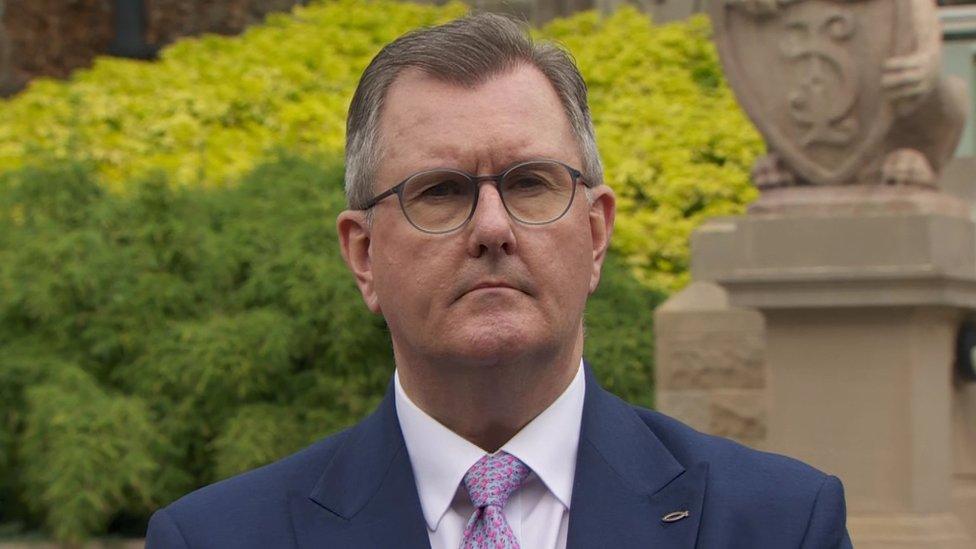
Sir Jeffrey Donaldson said the Stormont parties were against punishing the public
Sir Jeffrey said his party made clear to Mr Heaton-Harris that revenue raising should be left to an incoming executive.
"We will look at our ability to fund public services, but the problem is not the need to find new fiscal measures to punish the people of Northern Ireland," he added.
"The idea that Northern Ireland is excessively funded is a myth - we have a significant shortfall."
Alliance Party leader Naomi Long said asking the public to "pay more for less" was not a solution.
But she said parties would only be able to make the case for additional funding and reform once an executive is restored.
Ulster Unionist Party assembly member Mike Nesbitt said he had seen no detail of the proposals and that Northern Ireland's parties had not proposed any of the initiatives.
Asked if it was a tactic to apply pressure on the DUP to end its Stormont boycott, he said: "I'm not in the mind of the secretary of state but it seems to me if you're going to try and use a tactic to bully people, it won't work in this country."
The Social Democratic and Labour Party was not at the talks as it will not form part of any reformed Stormont Executive.

What are the proposals?
More than 40 revenue raising proposals across eight Stormont departments were put to political parties on Thursday.
The increases include:
Price of paid school meals
Cost of home-to-school transport
Housing Executive rents
MoT and driving test charges
Street parking charges
Other measures previously put forward - including water charges, raising tuition fees, increasing bus and rail fares - are also listed in the briefing paper.
Introducing prescription fees, charging for domiciliary care and scrapping plans for free hospital parking for patients, staff and visitors were proposed by health officials.
Higher court fees and new charges for Bovine TB testing have also been suggested.

Plan B talks
Meanwhile, Sir Jeffrey described comments made by Taoiseach (Irish Prime Minister) Leo Varadkar last week as unhelpful.
Mr Varadkar said a "plan B" was needed if the Stormont Executive was not restored in the autumn.
He also accused Westminster of a lack of co-operation.
Leo Varadkar was speaking to the media at Windsor Park
Sir Jeffrey said there was "still some way to go" in talks with the government relating to the Protocol.
"When the Irish government talk about need to prepare for plan B, I think they should focus on getting plan A sorted out instead of failure," he said.
- Published16 August 2023
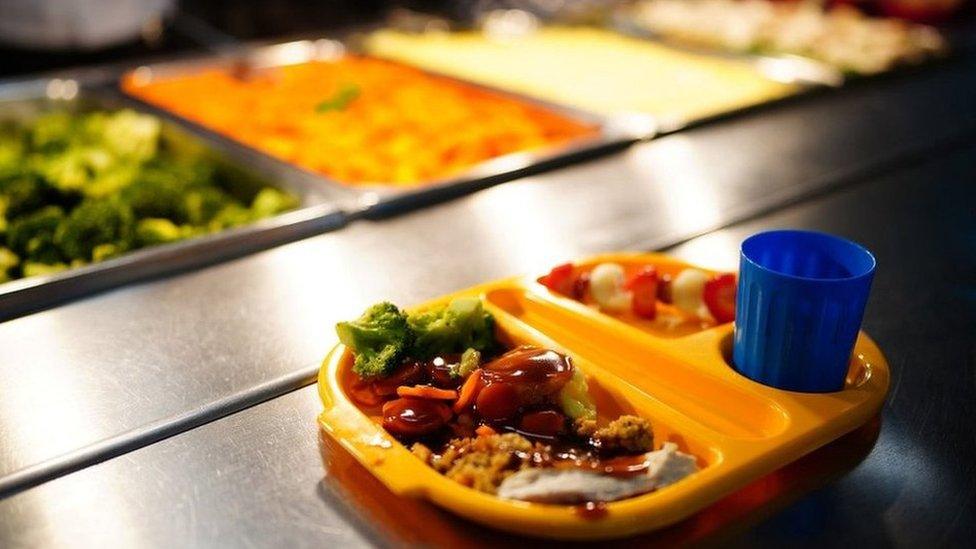
- Published9 August 2023
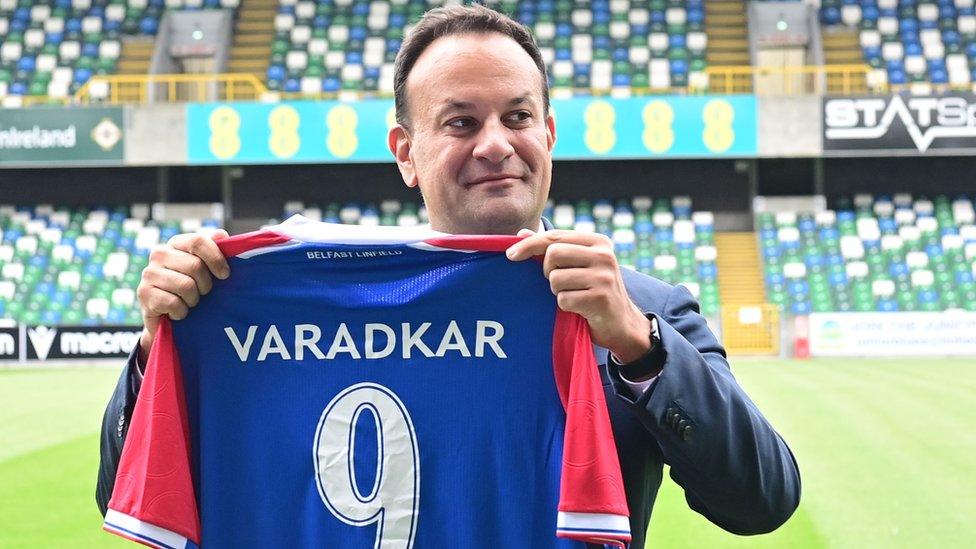
- Published4 August 2023
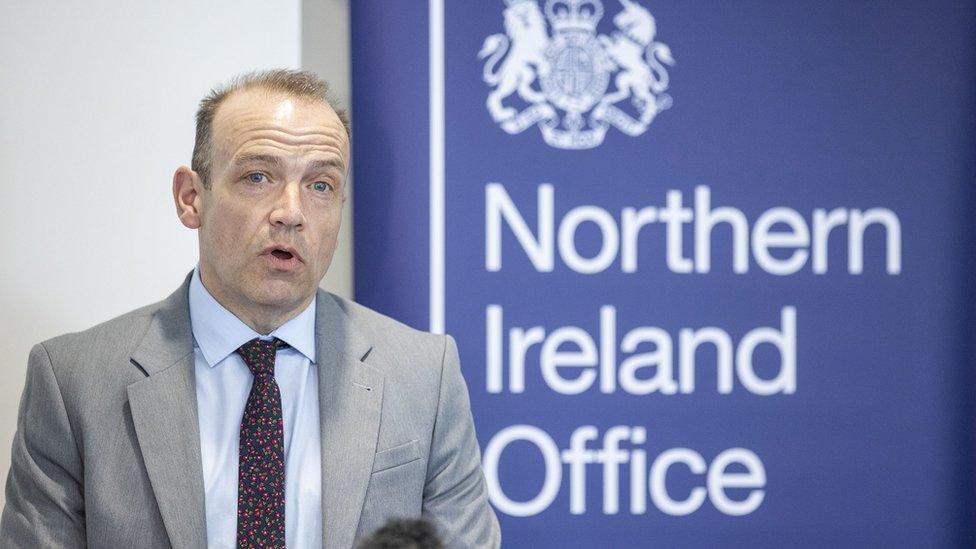
- Published14 June 2023
